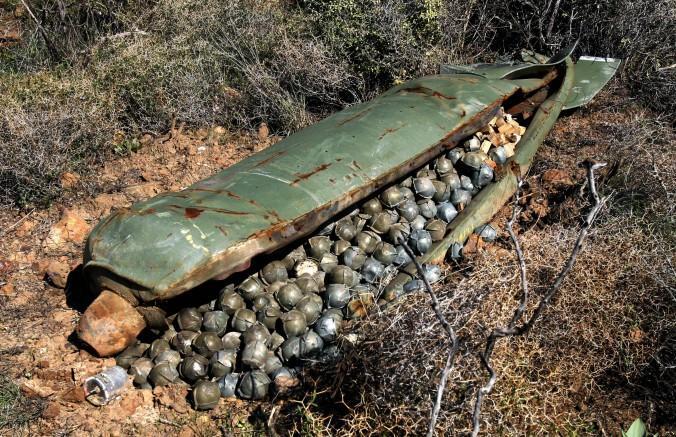
Israel Warns Public about Unexploded Bombs: A Serious Concern
Recent developments in the ongoing conflict between Israel and Iran have taken a grave turn. In a disturbing revelation, Israel has claimed that Iran launched a missile with a cluster bomb warhead, marking the first known use of such weapons in the conflict. This alarming event has raised concerns about the safety and well-being of civilians, particularly in areas where the missile strike occurred.
According to reports, the missile was fired from Iran and landed in an open area in northern Israel. While the impact zone was not heavily populated, the incident has sent shockwaves throughout the region, with authorities scrambling to assess the situation and contain potential hazards.
Israel’s Home Front Command has issued a stern warning to the public, urging civilians to exercise extreme caution and not to touch any fallen objects from the missile strike. The reason behind this warning is the potential presence of unexploded submunitions, also known as cluster bombs.
Cluster bombs are designed to disperse multiple smaller bombs, known as submunitions, over a wide area. These submunitions are designed to explode in the air, scattering shrapnel in all directions. While the primary goal of cluster bombs is to inflict maximum damage on enemy targets, they also pose a significant risk to civilians, particularly in areas where they may have fallen.
The Home Front Command has advised residents to report any suspicious items to emergency services immediately. This includes any unexploded ordnance, abandoned objects, or other debris that may have fallen from the sky. The authorities have emphasized the importance of avoiding any areas where the missile struck, as the risk of unexploded submunitions is still present.
This incident serves as a stark reminder of the devastating impact of war on civilian populations. The use of cluster bombs and other types of explosive ordnance can cause widespread destruction, injuries, and loss of life. Moreover, the lingering threat of unexploded ordnance can continue to pose a danger to civilians long after the initial attack has passed.
Israel’s warning to the public is a clear indication that the authorities are taking the situation seriously and are doing everything in their power to ensure public safety. The country’s military and emergency services are working tirelessly to clear the area and remove any potential hazards.
However, this incident also highlights the need for greater international cooperation and diplomacy to prevent the use of such weapons. Cluster bombs are banned under international humanitarian law, and their use is widely condemned by human rights organizations and other advocacy groups.
In the face of this crisis, it is crucial that the international community comes together to support Israel and other affected nations. This can be achieved through diplomatic efforts, financial support, and humanitarian assistance. Moreover, it is essential that the use of cluster bombs and other banned weapons is strictly prohibited, and those responsible for their use are held accountable.
As the situation continues to unfold, it is essential that civilians remain vigilant and take necessary precautions to ensure their safety. The authorities have provided clear guidelines on how to respond to this situation, and it is crucial that residents follow these instructions to the letter.
In conclusion, the recent incident in Israel serves as a stark reminder of the devastating impact of war on civilian populations. The use of cluster bombs and other types of explosive ordnance can cause widespread destruction, injuries, and loss of life. As the situation continues to unfold, it is essential that the international community comes together to support Israel and other affected nations, and that the use of banned weapons is strictly prohibited.
Source:
https://thecsrjournal.in/what-cluster-bomb-missile-iran-fired-at-israel/






